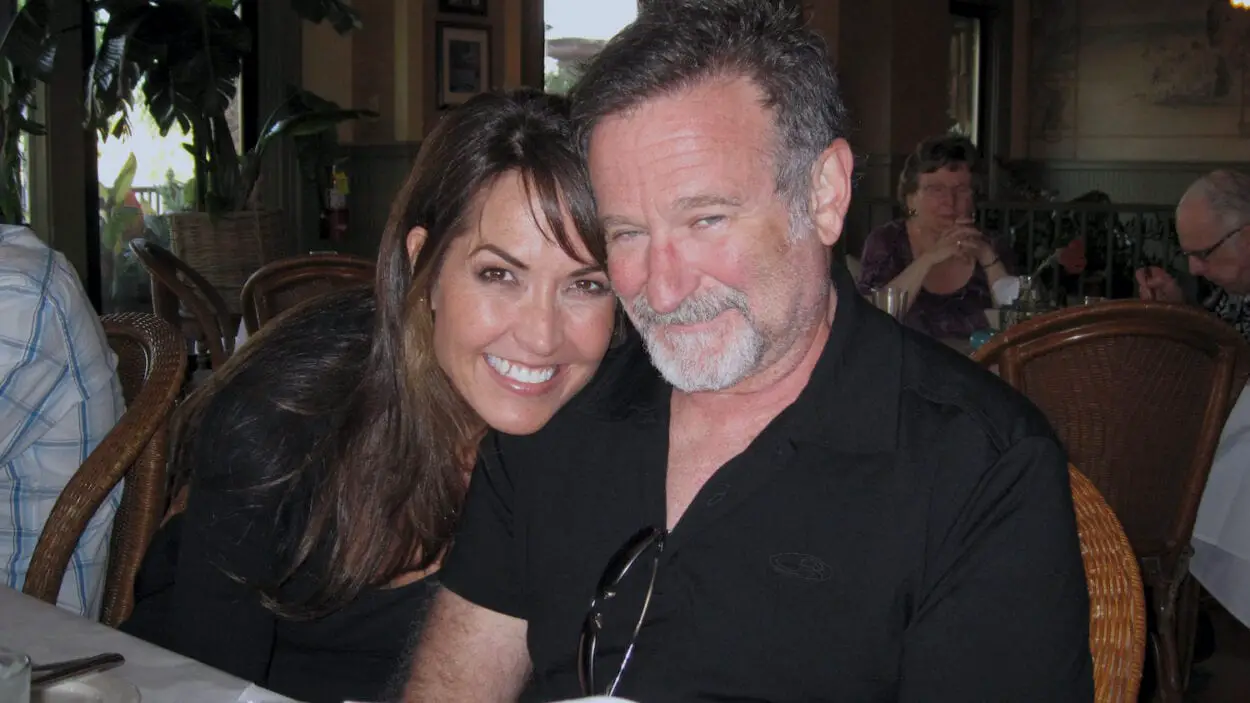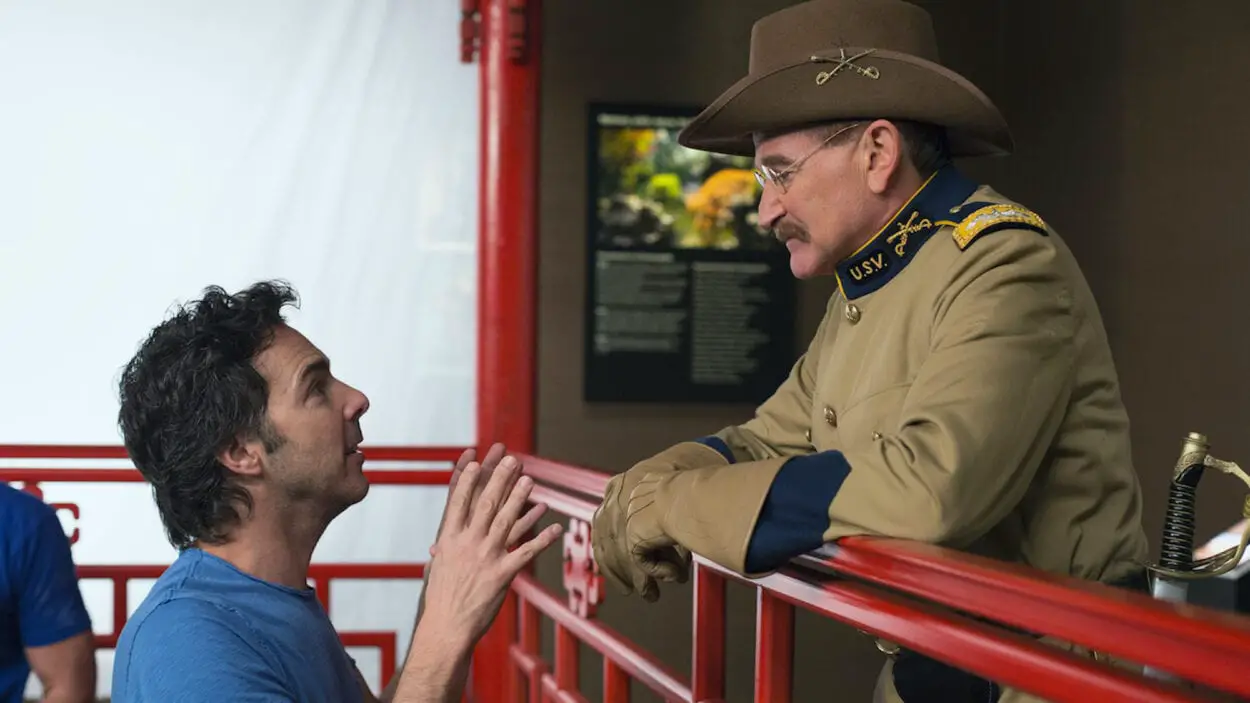Trigger warning: this content may be upsetting to anyone sensitive to discussions about suicide. Read, and watch, with caution.

How do you write about Robin Williams? Any review or rating I gave this documentary would be a disservice to the film and the man himself. Robin Williams was an idol, this undeniable legend, so naturally, it shocked the world when he committed suicide. The world grew a little darker on August 11, 2014. He was so inspirational to so many aspiring actors and comedians, and so deeply loved by his friends and family. Why would a man who lived on top of the world take his own life? Robin’s Wish offers insight.
You see, Robin had a form of dementia called Lewy body dementia, which causes a multitude of medical problems from tremors to delusions, and often leads to suicide. Let’s talk briefly about the disease itself. The documentary itself goes really in-depth into this, but I want to outline it so that you understand what I’m talking about. Lewy body dementia is a neurological disease that eats away at the brain until there’s nothing left. It’s not something you can catch; it’s not a mental illness; it’s a brain disease much like Alzheimer’s.
Robin’s Wish contains an in-depth analysis of the disease by neurologists and Robin’s wife, Susan Schneider Williams, who’s done extensive research on the subject. Susan discusses the condition and how it was spread to almost his entire brain. Doctors like Dr. Bruce Miller of the UCSF Memory and Aging Center and Dr. Walter J. Koroshetz, MD of the NIH’s National Institute of Neurological Disorders and Stroke provide insight into this deadly disease that’s really invaluable for a documentary such as this. A lot of research and care was put into this documentary, as you would hope for one about a man loved by millions.

The primary goal of the documentary is about dispelling the myths surrounding Robin Williams’ death. If you’ve been on social media at all in the last six years, I’m sure you’ve seen anti-suicide posts urging those with depression to seek out help, pointing towards celebrities who’ve killed themselves due to suicide. On almost every one of these posts is Robin Williams. The media is to blame for this, as they were speculating on the cause of death before the coroner’s report was even out. In Robin’s Wish, Robin’s friend Mike Pritchard puts it best when he says, “They painted him as the sad clown.” What’s so sad about this is the lack of awareness of this deadly disease, which Robin’s Wish is spreading.
The stigma that mental illness and particularly depression and suicide carries is a heavy burden. Immediately following his death, Robin Williams’ legacy was tarnished by speculation by the media of depression, drug use (he was sober), even money woes. News media took any glimmer of a story and ran with it. Robin’s Wish is about disproving those rumors and clearing his name. Robin Williams stood for so much good in the world. He did work with the USO performing stand up for the troops and he played basketball with a group of developmentally disabled adults. What he really did was he represented a positive outlook for so many, a light in the darkness. The beloved star of classics like Mrs. Doubtfire, Dead Poets Society, and Aladdin was exactly who we always knew him to be.
As much as this film is about the disease and figuring out just what went down those two years leading up to his death, it is also about his life. Robin’s Wish celebrates Robin Williams for the brilliant comedian, improviser, actor that he was. A Julliard-trained thespian, he shined in every role he took. Anyone who’s been a fan of his can tell you that. His friends like Rick Overton and Stanley Wilson talk so fondly of him, amplifying our beliefs of just how great Robin Williams truly was. That’s why this film is so hard to watch, emotionally. You see his absolute highs, his genius, and then it all crumbles when Lewy body dementia strikes.

Throughout Robin’s Wish, friends and coworkers comment on Robin’s changed demeanor and behaviors towards the end. Robin did not know he had this condition—it wasn’t revealed until October of 2014 when the coroner’s report came out. Nevertheless, the people he worked with noticed his decline. When you hear people like Night at the Museum director Shawn Levy talk about how difficult it became to work with Robin, how everyone could tell he was going through something major, it becomes clear just how devastating this disease is. This documentary shows us just how crucial it is for awareness of Lewy body dementia.
If you take anything away from this documentary, take that this form of dementia is extremely serious and that Robin Williams’ death was caused by a serious medical issue. Robin Williams, until the very end, was at his core the charismatic, lovable, sweet person we all knew and loved. Take a moment to learn about this deadly disease and watch Robin’s Wish.
https://www.youtube.com/watch?v=cT7fqJbvE4M&feature=youtu.be
Robin’s Wish is available on-demand and digital September 1.



